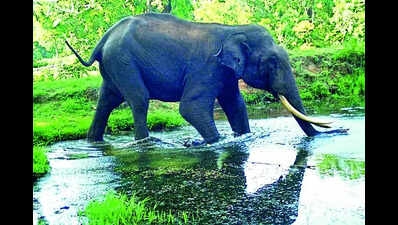- News
- City News
- trichy News
- At global conference, southern states join forces on man-elephant conflict
Trending
At global conference, southern states join forces on man-elephant conflict
The southern states of Karnataka, Kerala, Tamil Nadu, and Telangana have collaborated to address human-elephant conflicts causing significant harm. At the Bengaluru conference, a 15-point 'Bengaluru Charter' was adopted, emphasizing real-time information sharing and uniform SOPs. Technological advancements are being leveraged to manage elephant movements and reduce casualties and property damage.

Karnataka forest minister Eshwar Khandre opined that effective utilisation of tech is key to mitigating rising incidents of such conflict
At the global conference on 'human-elephant conflict management', hosted by the Karnataka govt in Bengaluru, the southern states, along with the distant state of Jharkhand, made a strong statement by adopting a 15-point 'Bengaluru Charter.' Key among their resolutions is the development of a uniform SOP for tracking, capturing and managing elephants across the region.

Focusing on landscape management across elephant-inhabited areas of South India, the states - represented by their forest ministers - agreed to take up habitat management to ensure enough availability of fodder and water. Anticipating fragmentation of habitats due to linear projects, the states also resolved to collect 5% of the proposed project costs towards mitigation measures all along the project site.
Tech to drive elephants
Pointing out that effective utilisation of technology is the key solution to mitigating rising incidents of human-elephant conflict, forest minister Eshwar Khandre said, "Karnataka has already been at the forefront in using technology to drive elephants back into the forest, besides alerting the local population about herd movement. We need to ensure zero casualties in the coming days."
M Mathiventhan, forest minister of Tamil Nadu, offered insights into the state's experiment with AI tools to address the issue. "Tamil Nadu has been working with AI tools including sensors, thermal cameras, and other facilities to locate elephants and track their movements constantly. But with a vast forest area with Karnataka and Kerala, the state is open to adopting scientific programmes and best practices."
End of Article
FOLLOW US ON SOCIAL MEDIA










